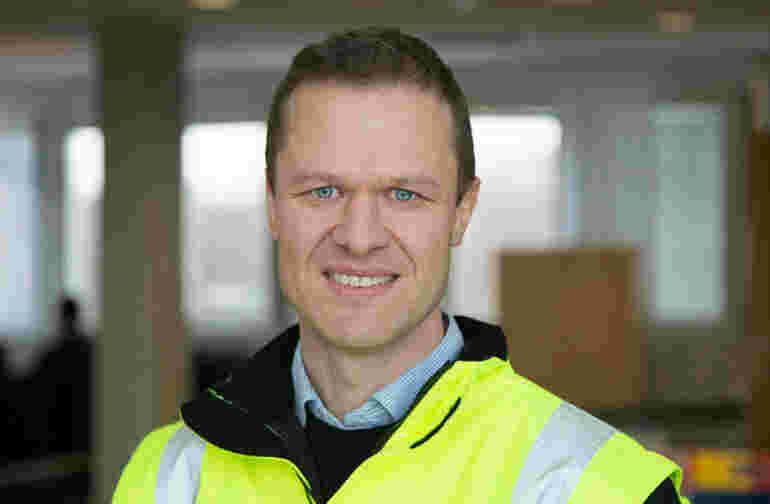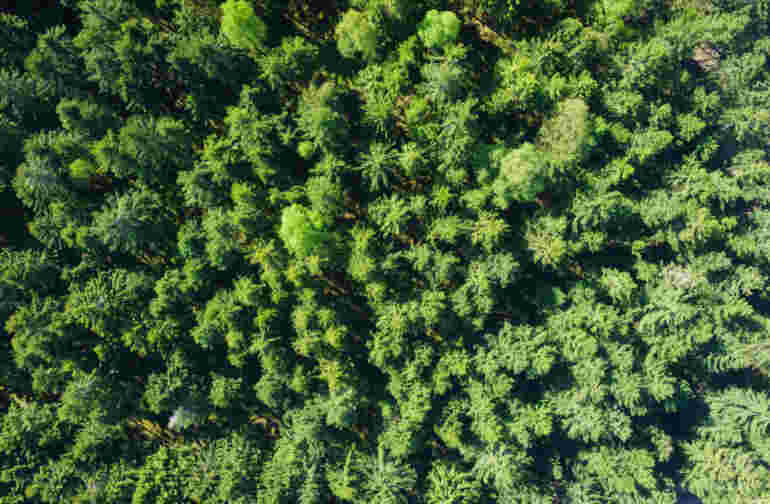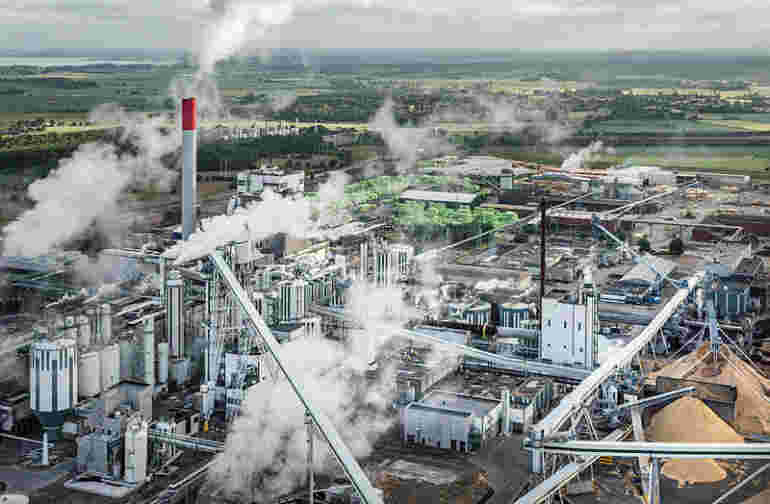Marcus Åsgärde, site manager at Södra, Värö

Södra is Sweden’s largest forest owner association and one of the biggest private employers in Halland. At Väro, they operate one of the world’s largest pulp mills and one of Europe’s largest sawmills. The hyper modern facilities are of great importance to the business life and people of Halland.
Södra is in its current shape quite unusual. It’s an economical forest owners association consisting of 52,000 forest owners all located in southern Sweden. The founding of the association can be traced back to the 1920s and 1930s and its original purpose was to secure the deposition of its members raw materials. At first, the association consisted of several associations slowly joining forces, and in 1938 the association most commonly viewed as the original Södra was founded. In 1972, Värö pulp mill was inaugurated and two years later the saw mill came into existence as well. In 2022 Södra in Värö celebrated its 50th anniversary.
Södra in Värö has gone from not having any industrial traditions at all to having a hyper modern facility with great importance to the business life and the people who live here. If we were to count what we create around our business, we have a lot of new employment opportunities.
Marcus Åsgärde, site manager at Södra in Värö
In total, Halland is covered by about 773,500 acres of forest land. The forest and logging industry constitutes three percent of the total employment within the region, and there’s a strong tourism and organized outdoor life connected to the forests of Halland.
Forest outside of Åled in southern Halland, Sweden

Wood – a part of the solution
The main part of the raw materials from Södra derives from the forest owner’s properties. The import is around ten percent of production, some of it being Norwegian pulpwood. The pulp is Södras’s largest product and is therefore also a major source of income.
”The end products are different paper-based products like toilet paper and paper towels. We’re also a large supplier of electricity, district heating and biofuel. The total energy delivery correspondents to the energy demand of around 80,000 regular-sized family houses”, Marcus Åsgärde says.
As of late, Södra has gone from being part of the climate issue to acting as a solution to it. The raw materials from every harvested tree is utilized in the best possible way, making sure no possibilities are wasted. Materials not meeting the demands for being turned into wood-based products or pulp can become bioproducts, energy and fuel. This will be completely crucial in creating a fossil fuel-free future.
Södra in Värö is a hyper modern facility with great importance to the business life in Halland.

– If we are to succeed with the kind of readjustments necessary in most parts of the world, creating a more sustainable society, I believe the forest industry holds an important position since we have so many renewable resources even from our production line, Marucs Åsgärde says.
Putting a lot of effort into innovation and collaboration, Södra has been able to develop the world’s first large-scale process for recycling textile mixed waste – OnceMore. A couple of years ago, Södra invested in a factory able to produce cross-glued wood, consisting of stabile wood elements used in the construction of multi-storey buildings as well as replace large parts of the type of concrete being used today. For the last 15-20 years, there’s been ongoing large industrial projects, where Södra has been able to expand and invest.
Demand for replacement products
In Halland, there are many committed forest owners, which creates the right conditions for a varied forestry with much activity and development, according to Marcus Åsgärde.
– If you look at everything we do and the products we’re able to extract from the forest, from hygiene articles and packages for renewable electricity, heating and biofuel, there’s no doubt the forest industry is good business. What’s driving a lot of the demand is replacement products. Everyone wants to transfer from fossil-based products to renewable ones. The question is, based on the raw materials we extract from the forest, what should we do with it and how do we utilize it in the best possible way? This will be the big question going forward. Which are the best social benefits of this, creating the most value? We’re constantly working on this, says Marcus Åsgärde.